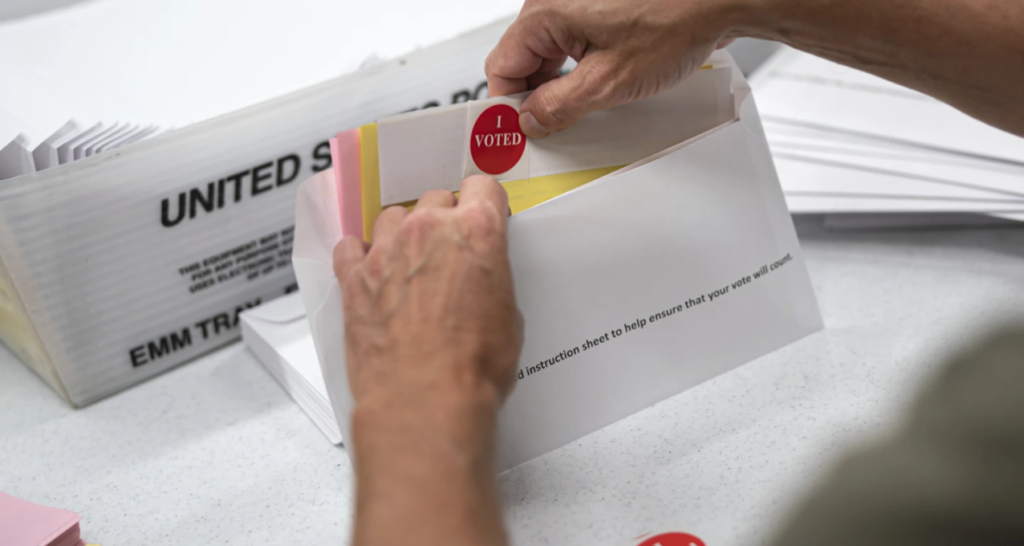In a pivotal ruling, the Minnesota Supreme Court has mandated that Hennepin County, the state’s most populous county, reevaluate its absentee ballot review board composition. The court’s decision, issued late Tuesday, directs election officials to appoint new members from a list submitted by the Republican Party of Minnesota, reinforcing the importance of partisan balance in the electoral process. This article delves into the details of the court’s ruling, the implications for absentee voting in Minnesota, and the broader context of election integrity and administration.

Background of the Case
The conflict arose when the Republican Party of Minnesota, along with the Minnesota Voters Alliance, petitioned the court after discovering that no members from the party’s list of over 1,500 volunteers were appointed to Hennepin County’s absentee ballot board. Traditionally, the board is composed of election judges selected from lists provided by both major political parties, ensuring a balanced representation in the voting process.
In Hennepin County, prior to the court’s order, the absentee ballot board consisted of four Democrats and one Republican. This composition raised concerns among GOP officials, who argued that it violated state law regarding the selection of election judges.
Timeline of Events
Immediate Impact: The county has until Friday to comply with the court’s ruling, ensuring that the board reflects a more balanced representation of party affiliations.
September 20, 2023: Minnesota began in-person early voting and absentee balloting.
Court Ruling: The Minnesota Supreme Court ordered Hennepin County to adhere to state law by selecting election judges from the party lists submitted to the Secretary of State’s Office.
Details of the Court’s Ruling
Chief Justice Natalie Hudson’s ruling did not invalidate the over 263,000 absentee ballots already received, of which more than 209,000 had been accepted by the existing board. However, it did reinforce the obligation of Hennepin County officials to start the appointment process from the lists provided by the political parties.
Key Points from the Ruling:
Recognition of Existing Operations: The court acknowledged that the absentee ballot board had been functioning adequately, but the law must still be followed.
Mandatory Compliance: Hennepin County must appoint election judges from the submitted party lists before resorting to selections from other sources.
Clarification on Partisan Balance: While the court did not specify the exact number of Republicans or Democrats required on the board, it emphasized that party balance is critical.
Hennepin County’s Response
In response to the Supreme Court’s decision, Hennepin County Auditor Daniel Rogan stated that they would begin reaching out to individuals on the GOP’s list to fill the vacancies on the absentee ballot board. He also noted that the ruling was based on narrow legal grounds and reaffirmed that the board had maintained sufficient party balance in its operations.
Context of the Absentee Ballot Board
The absentee ballot board plays a crucial role in processing and counting ballots submitted by mail, in-person absentee voting at county courthouses, or via local communities without their own boards. The integrity of this process is paramount to ensuring fair elections.
Implications for Election Integrity
The Minnesota GOP celebrated the court’s decision as a significant victory for election integrity. State GOP Chair David Hann remarked, “The Court’s order made clear that there is no ambiguity in the law — Hennepin County cannot bypass the Party’s list of election judges.” This statement underscores the Republican Party’s commitment to ensuring that all electoral processes adhere strictly to legal requirements.
Broader Context of Election Integrity
The ruling comes at a time when election integrity is a hotly debated topic across the United States. Many states are grappling with how to balance efficient election administration with the need for transparency and fairness. The Minnesota Supreme Court’s decision reinforces the principle that electoral processes must be inclusive and representative of all political views.
Concerns and Criticisms
Hennepin County has faced scrutiny beyond the composition of its absentee ballot board. Earlier this month, a private courier’s vehicle transporting absentee ballots was left unattended, prompting concerns about ballot security. Although security footage confirmed that no tampering occurred, the incident highlighted vulnerabilities in the election process, leading to calls for increased oversight and procedural reforms.
Impact on Local Election Administration
The court’s ruling and the accompanying concerns about ballot security have implications for local election administration across Minnesota. Officials will need to ensure that all processes are transparent and secure, particularly as the 2024 election approaches.
Future Considerations
As Minnesota approaches the upcoming election cycles, the focus will remain on how election officials implement the court’s ruling and the steps they take to maintain the integrity of the electoral process. With early voting already underway, ensuring that all absentee ballots are processed fairly and transparently will be crucial.
The Role of Technology and Monitoring
The integration of technology in monitoring absentee ballot processes can enhance security and transparency. Election officials may explore options for real-time tracking of ballots, improved communication with party representatives, and stronger protocols for handling ballots to prevent future incidents.
Conclusion
The Minnesota Supreme Court’s ruling on Hennepin County’s absentee ballot review board marks a significant step in reinforcing the importance of party balance in election administration. As the state navigates the complexities of maintaining electoral integrity amidst growing public scrutiny, the implications of this ruling will be felt across Minnesota’s political landscape.
The emphasis on compliance with state laws not only serves to uphold the integrity of the electoral process but also restores public confidence in how elections are conducted. Moving forward, it will be vital for Hennepin County and other jurisdictions to implement best practices in election administration to ensure fair and transparent elections.





